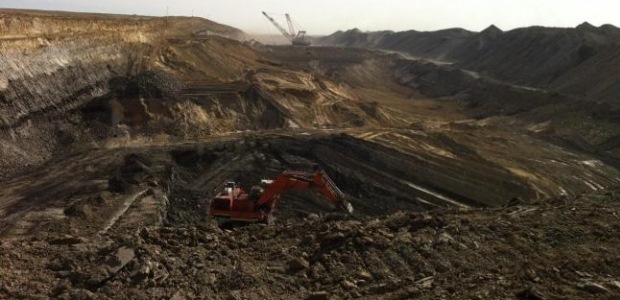
GAO Recommends Eliminating Coal Mine Operators' Self-Bonding
GAO found that state agencies and OSMRE report they hold approximately $10.2 billion in surety bonds, collateral bonds, and self-bonds as financial assurances for coal mine reclamation. The stakeholders GAO interviewed identified several challenges OSMRE and state agencies face in managing financial assurances, citing industry bankruptcies and lower coal demand.
A new report from GAO, the Government Accountability Office, recommends that the Department of the Interior's Office of Surface Mining Reclamation and Enforcement (OSMRE) stop allowing coal mine operators to use self-bonding -- the practice of guaranteeing on the basis of their own finances to cover the costs of restoring land they have disturbed, after mining has finished. The federal government requires coal companies to get bonds to assure their payment for these activities, and federal law permits mine operators in some cases to self-bond rather than secure a bond through another company or providing collateral.
"Some stakeholders told us that self-bonds are riskier now than before, citing industry bankruptcies and lower coal demand," according to GAO, which recommends in the report that Congress consider amending the law to eliminate self-bonding.
GAO found that state agencies and OSMRE report they hold approximately $10.2 billion in surety bonds (guaranteed by a third party), collateral bonds (guaranteed by a tangible asset, such as a certificate of deposit), and self-bonds (guaranteed on the basis of a coal operator's own finances) as financial assurances for coal mine reclamation. The stakeholders GAO interviewed identified several challenges OSMRE and state agencies face in managing financial assurances, including:
- Obtaining additional financial assurances from operators for unanticipated reclamation costs, such as long-term treatment for water pollution, can be difficult.
- Determining the financial stability of surety companies has been challenging in certain instances.
- Self-bonding presents a risk to the government because it is difficult to 1) ascertain the financial health of an operator, 2) determine whether the operator qualifies for self-bonding, and 3) obtain a replacement for existing self-bonds when an operator no longer qualifies.
- Some stakeholders said the risk from self-bonding is greater now than when the practice was first authorized under the Surface Mining Control and Reclamation Act.
GAO previously reviewed federal financial assurance requirements for various energy and mineral extraction sectors and found coal mining is the only one where self-bonding was allowed. Because the Surface Mining Control and Reclamation Act allows states to decide whether to accept self-bonds, eliminating the risk that self-bonds pose to the federal government and states would require that law to be amended.
GAO said the Interior Department "neither agreed nor disagreed with GAO's recommendation."